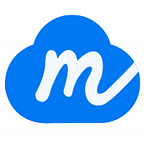Data Breaches Today
Facebook made the biggest data leak scandal of 2018. It was revealed that Cambridge Analytica had harvested the personal data of millions of people’s Facebook profiles without their consent and used it for political advertising purpose. It was been described as a watershed moment in the public understanding of personal data — they’ve never realized the value in their personal data until this scandal.
The Verizon Data Breach Investigation Report (DBIR) investigated 41,686 security incidents and 2,013 data breaches provided by 73 data sources, and found that 10% were breaches of the Financial industry and 43% of breaches involved small businesses victims.
Centralized Storage v.s. Decentralized Storage
The Facebook scandal and numerous smaller data breaches exposed the weaknesses of centralized storage. There are four disadvantages of centralized storage:
First, the costs of centralized storage are high, including employee wages, accounting costs, legal fees, management burdens, data center rents, etc. These costs are even gradually increasing, making the prices of centralized cloud service higher. In addition, the cost of data migration between different centralized cloud storage platforms is also high.
Second, the data transmission speed of the centralized storage is slow. Since the centralized cloud server is usually located in a remote area, which is far away from the users, making its data transmission speed quite slow.
Third, the centralized storage is low in security. In terms of location, centralized cloud servers are concentrated in one or several places. In the event of a power outage or other failure, a large number of related services are often paralyzed, or even have the risk of losing the data for good.
Lastly, the centralized storage is prone to privacy leaks. The hosts can monitor, censor or disclose data to third parties and your data could be lost, altered or scrambled.
The cloud storage market is estimated to reach $89 billion by 2022, quite a jump from $31 billion in 2017. With the increasing volume and inventory of cloud storage market, many companies and individuals prefer to access data in a securely, quick, and ow cost way,. This is where decentralized storage comes up.
Decentralized storage means the files are stored on multiple computers (called nodes) on a decentralized network. Like with conventional cloud storage, when you need the file, you can request it and receive the file. Requesting your file works similarly to BitTorrent and other P2P clients where you download fragments of that file from participants in the network until you have the full file.
The Memolabs Project
Memolabs is a highly secure, reliable and large scale distributed data storage system, aiming to buildi decentralized storage service on Blockchain.
Memolabs records key information on the blockchain and uses management devices and edge storage devices to store other information and user data. At the same time, more concise and efficient technologies will be used to ensure the security and reliability of data stored in edge storage devices, thereby improving the cost performance of the storage system.
Memolabs will select the nearest storage node when downloading files, which shortens the distance of data transmission. At the same time, the data stored in multiple nodes will be reorganized, and multiple parallel transmissions can greatly increase the data transmission speed. This avoids the problem that the centralized cloud server has when the nodes are far away.
In Memolabs storage system, one piece of data is stored in multiple devices, and anti-collision hashing and digital signature technology are used to identify corrupted data, and other devices are used to repair corrupted data to ensure data safety.
In terms of security, the Memolabs privacy policy requires that the data source (clients) be encrypted with the user key before being written to the device, whether it is transmitting data over the network or data stored on the edge storage device. The text is in cipher text form to ensure user privacy.
The decentralized storage technology is still in its early days, but that doesn’t stop us from feeling excited for what’s next. Let’s wait and see!
Follow us:
Twitter: https://twitter.com/Memo_Labs
Facebook: https://facebook.com/memolabs.org/
Telegram: https://t.me/memolabsio
